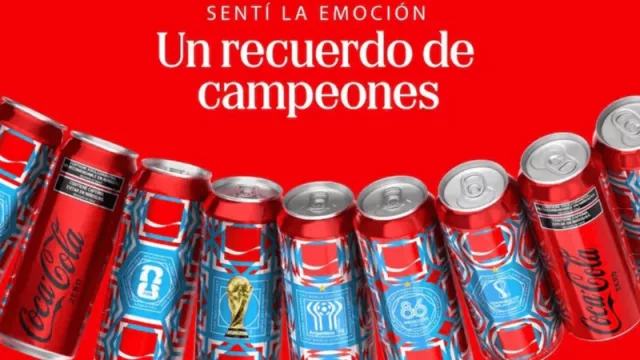Part One: Round Table Leadership
The United Kingdom has a long history of predisposition to public, free, and orderly debate—sometimes harsh, but always mindful of good manners. Fair play, a value often manifested in sporting competitions, is for the British a behavior expected in any dispute, whether to correct, adapt, or preserve what they have.
The mythical legends of King Arthur tell of a round table that brought together the most important lords of the Kingdom in a brainstorming session of consultations, ideas, propositions, and agreements on topics indicated in the royal summons. Thus, a group of knights, without armor or interdependent hierarchies, armed with individual knowledge and experiences, gathered around a table to reflect, debate, and resolve together.
The results obtained in these deliberations transformed England into the most powerful country in the world, an achievement that King Arthur would not have dreamed of by solely resorting to his absolutist powers or personal skills. The "round tables," pioneers in corporate debate, found their echo in English boards, evolving into the standards of good practices embraced internationally today.
Follow us on: IG: @infonegociosmiami
And in Latin America, how are we doing?
How do we handle disagreements, difficulties, our different perspectives on the same issue, and the countless situations that should be the subject of reflection and debate within boards? Have we managed to internalize this corporate vision of the British, which implies overcoming the fear of deliberating in groups, listening to divergent opinions, analyzing them, seeking consensus, and making collective decisions?
Few directors are aware that part of the solution is to work differently. I am not referring only to the adoption of common and increasingly overwhelming norms and protocols regarding corporate governance but also to new processes that encourage and give value to teamwork among peers summoned for reflection, as King Arthur intuited.
Many attitudes and responses that seem incontrovertible reveal patterns of unreflective conformity, of inertia that avoids dissent and deliberation aimed at building consensus—behaviors unbecoming of people whose common task is to seek the best results for the company. Under these parameters, boards are coordinated, judicious, and deliberative councils, aware of their collegiate integration and their "corporate" mission. This implies flexible and inquisitive board members, ready to listen, ask questions, and debate, and reluctant to comfortably adhere to prevailing positions.
How to achieve it?
In my experience, through "conversational processes" recurring annually that demand prioritizing the focus on the peer team, such as: setting the board's annual agenda; self-assessing with the help of third-party experts; and learning together to obtain collective agreements of value for the company.
www.tomateconsultores.com. Contact email: [email protected]
Part Two: Infonegocios Insights
-
Our Take on Guzmán's Brilliant Analogy (So Necessary to Raise Awareness and Implement Today)
Sergio Guzmán L.'s article transports us to King Arthur's legendary round table, evoking a powerful image of leadership and governance. However, to resonate with Infonegocios Miami's sophisticated audience, I propose a more profound, analogical approach, enriched with current management terminology:
-
From Camelot to Miami and LatAm: The Eternal Quest for Good Governance (and How to Achieve it in Your Company)
"The legend of King Arthur and his round table transcends centuries. More than a mere story, it's an allegory about the constant pursuit of good governance, a challenge as relevant today in Miami boardrooms as it was in ancient Camelot."
"While the image of the round table evokes collaboration and equality, governance in today's business world is a much broader concept. It's not just about meetings; it's about the set of structures, principles, and processes that guide decision-making, ensure accountability, and ultimately determine the success or failure of an organization."
-
The Code of Corporate Chivalry: From Knights to Impeccable and Excellent Contemporary Leaders
"Arthur's knights were governed by a code of honor. In today's business world, this code translates to transparency, altruism, integrity, impeccability, excellence, responsibility, and strategic vision. This code today requires us to develop emotional intelligence, conversational skills, and a broad 'crossing' vision. A leader in the style of Arthur doesn't impose, but rather inspires, listens, delegates, and builds consensus."
-
From Swords to Spreadsheets: The Tools of Modern Governance
"While round tables encourage dialogue, modern governance requires more sophisticated tools: dashboards with relevant KPIs, Enterprise Risk Management (ERM) systems, efficient internal communication channels, and clear compliance policies."
The Holy Grail of Competitiveness: The Benefits of Good Governance
"Just as the Holy Grail was the knights' greatest aspiration, good governance is the Holy Grail for companies seeking to attract investment, improve their reputation, optimize their financial performance, and ensure their long-term sustainability."
"The pursuit of good governance never ends. It's a journey that demands constant adaptation, continuous learning, and an unwavering commitment to excellence. Like the legacy of King Arthur, the decisions we make today in our companies will resonate in the future."
Synoptic Table: From the Round Table to the Boardroom
|
Round Table (Camelot) |
Boardroom (Miami) |
|
Open dialogue |
Transparent communication |
|
Seeking consensus |
Informed decision-making |
|
Code of honor |
Business ethics and compliance |
|
Loyalty and trust |
Culture of accountability |
|
Vision of the kingdom |
Business strategy |
Call to Action and Altruism:
"Reflect on the governance in your company: Does it resemble a round table or a battlefield? It's time to build a legacy of success, inspired by the timeless values of good governance."
Infonegocios Miami
https://infonegocios.miami/suscribite-al-newsletter
Contact Infonegocios MIAMI: [email protected]












Tu opinión enriquece este artículo: